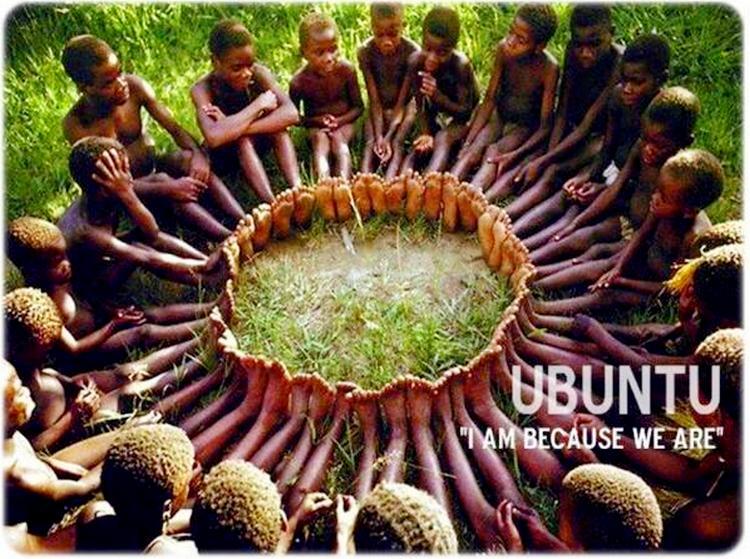
Human nature is by nature one of striving. It’s what the creation story of Genesis points to in the condemnation of Adam and Eve by God to have great toil in bringing forth and sustaining life in working the soil and in childbirth. The other pole of human existence and civilization is one of great creativity, passion, and collaboration. This is pointed to in the theological notion of the missio dei (the mission or purpose of God) who creates humanity in the divine image in Genesis 1:27. Like God we are made for life-in-community, to be co-creators, to bring forth and sustain life. Both potentials are within us. It’s an existential truth and paradox named by most religions, philosophies and world-views.
In the ancient world, this paradox was understood through the worldview that human beings were part divine, or that there was a spiritual aspect of them that was divine, given from the gods, which had been tainted, soiled, or corrupted by the flesh, life in the physical world. It sounds quite different, and yet it also resonates with the conception of sin and what Augustine called the notion of “original sin.” The extreme belief in this disparity between spiritual or divine and physical or human was the philosophy of docetism. It seems to be the major theological problem which was dividing the church to which our letter is written.
The author writes that the person of Jesus the Christ (not the idea of him) embodies both the highest human spirituality and the fullness of the presence of God. Jesus is the center of faith and the universe. Faith is confessing Jesus and the balance of divine and human, spiritual and physical incarnate with him as the image of God. That confession is brought about and discerned by the presence and person of God’s Spirit if the world. Such faith is demonstrated in a relationship with God, life in God through Christ, a life that consequently and necessarily reflects actively the Love that God is and gives.
Yet, all too often we transform faith in Christ from loving actions to a feeling of superiority because we uphold the correct beliefs or state faith in the most appropriate way. Words do matter, but if they’re not accompanied, or embodied in action then they’re merely a clanging symbol making noise but changing nothing. 1 John remind us that love is not a commandment, rather the commandment is to love. We are because Jesus is.
We always struggle with this balance, and seemingly even more in our divisive age when we can’t stand Republicans, labeling them as homophobic fascists and racists. Or we can tolerate Democrats who are seen as socialist secularists blinded by politically correct anti-Americanism. We struggle to love each other beyond our different world-views, political perspectives, backgrounds and opinions on such disparate things as a border wall, the current teacher’s strike, labels put on public bathroom doors, and which civil rights are inalienable.
In a NY Times opinion piece this week the columnist David Brooks wrote about a similar theme as in our scripture today. Rather than spiritual language, he uses the terms of “weavers” and “rippers” of our social fabric. He writes:
“We are born into relationships, and the measure of our life is in the quality of our relationships. We precedes me.”
While the author of 1 John is addressing a long-gone church facing the ancient theological problem of docetism, the letter also addresses the role which we are called to play, the word we are invited to incarnate, the love we are commanded to root ourselves in and pay forward.
Questions for the practice of Examen & Contemplation
- What shimmers in your attention in this reading?
- Inherent in the text today is the evocation of a debate, division or dispute within the community over topics of theology and ethics, in particular in the understanding – or confession – of Jesus as the Christ. How do you handle such debates? Do you – or we as the church – tend to paint them in black and white terms of a cosmic struggle of good versus bad? Or do you look more for how to invoke spiritual authority in order to discern the better, or best way forward? How are we called to love as Christ loves even in disputes and debates?
- Right belief is demonstrated by living in and from that belief, that’s to say the proof or demonstration of faith is active love of others as God loves us. It’s similar to the book of James which says “faith without works is dead.” Here faith without love isn’t true faith. How does that play out in our community life? In how we choose our leaders? In how we approach Christian education? What about in your own personal life in terms of hard relationships, that may need forgiveness, expressions of gratitude and in which may it’s hard to say – and do – I love you?
Download the Text Study Guide we’ll use in our Vocabulary of Faith discussion at @capcoakland HERE.